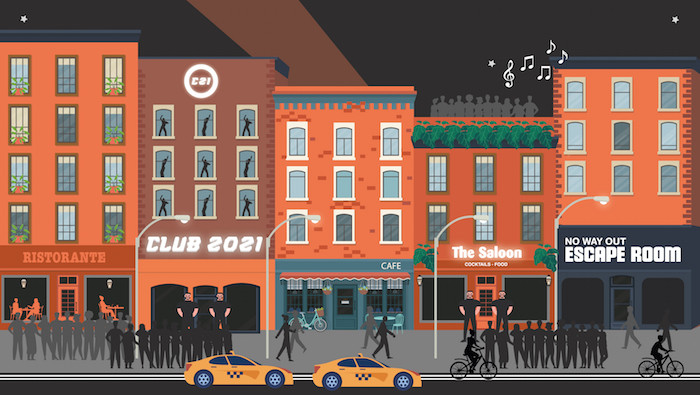
With retail moving online, the high street of the future can be a vibrant centre of hospitality and culture, says nightlife entrepreneur Bradley Gough.
Spending habits in the UK have transformed significantly and the high street has been particularly hard hit. Chains and big brands have shifted away from physical stores and many businesses have been unable to reopen – leaving the question of what to do with all the empty space in the hearts of our communities.
The departure of high street favourites like Debenhams, Top Shop, Burtons and Dorothy Perkins has certainly led to thousands of job losses and a gaping hole in the high streets offering, but the high street isn’t dying. Instead it is in a state of transition away from the traditions of the last 50 years. Even before the pandemic, there were closures and a declining demand for retail space. Shopping online has been steadily on the rise for a decade, but lockdown has accelerated our use of it.
But I am hopeful about the future of our high streets - hospitality and culture could play a major part in reinvigorating these areas. Disused retail spaces could be transformed into something new, ready for all the fun that will be had post-pandemic. Throughout history, high streets have been the centres of communities, playing important roles in commerce but also for social gatherings and events.
Local people will still need access to service-led industries such as dry cleaners, key cutters, nail bars, banks and Post Offices, but the high street could become dictated by the local population’s requirements, their lifestyle patterns and choices for recreation. Despite the growth of an ‘armchair economy’ during the pandemic, people will be keen to get out as soon as it is safe, ready to have fun and make new memories with their friends and family.
Empty department stores could be transformed into hubs for leisure. Who knows, the next craze to sweep the nation could be a boozy ball pit-based night out, or themed restaurants which immerse you in beach or rainforest surroundings, from the comfort of your town centre.
The shops you spent hours looking around with your parents as a kid, could become city centre mazes instead. Bars could be tucked away, hidden in the basement of retail units, whilst the stores above become experience centres where customers browse and try products on, before ordering online for delivery to their door.
Technology is the main tool to enhance a community hub and create a high street that meets a range of different consumer needs. A shift towards free Wi-Fi in shared spaces, improvements in eco transport links and more electric car charging points could drive people to their centres and high street to enjoy the post pandemic climate.
Bradley Gough is the founder of Groubook, an app to help book, organise and arrange nights out.


